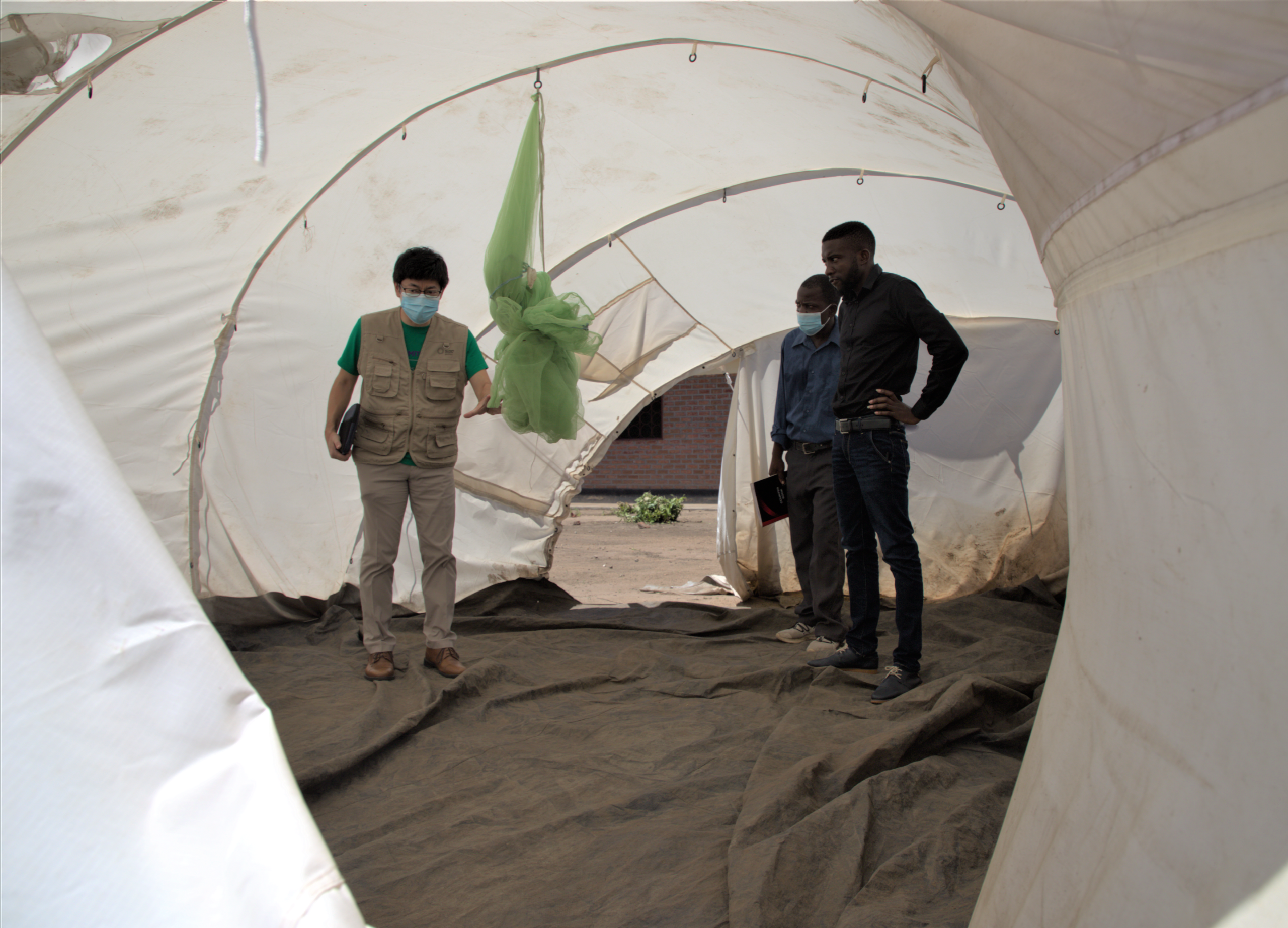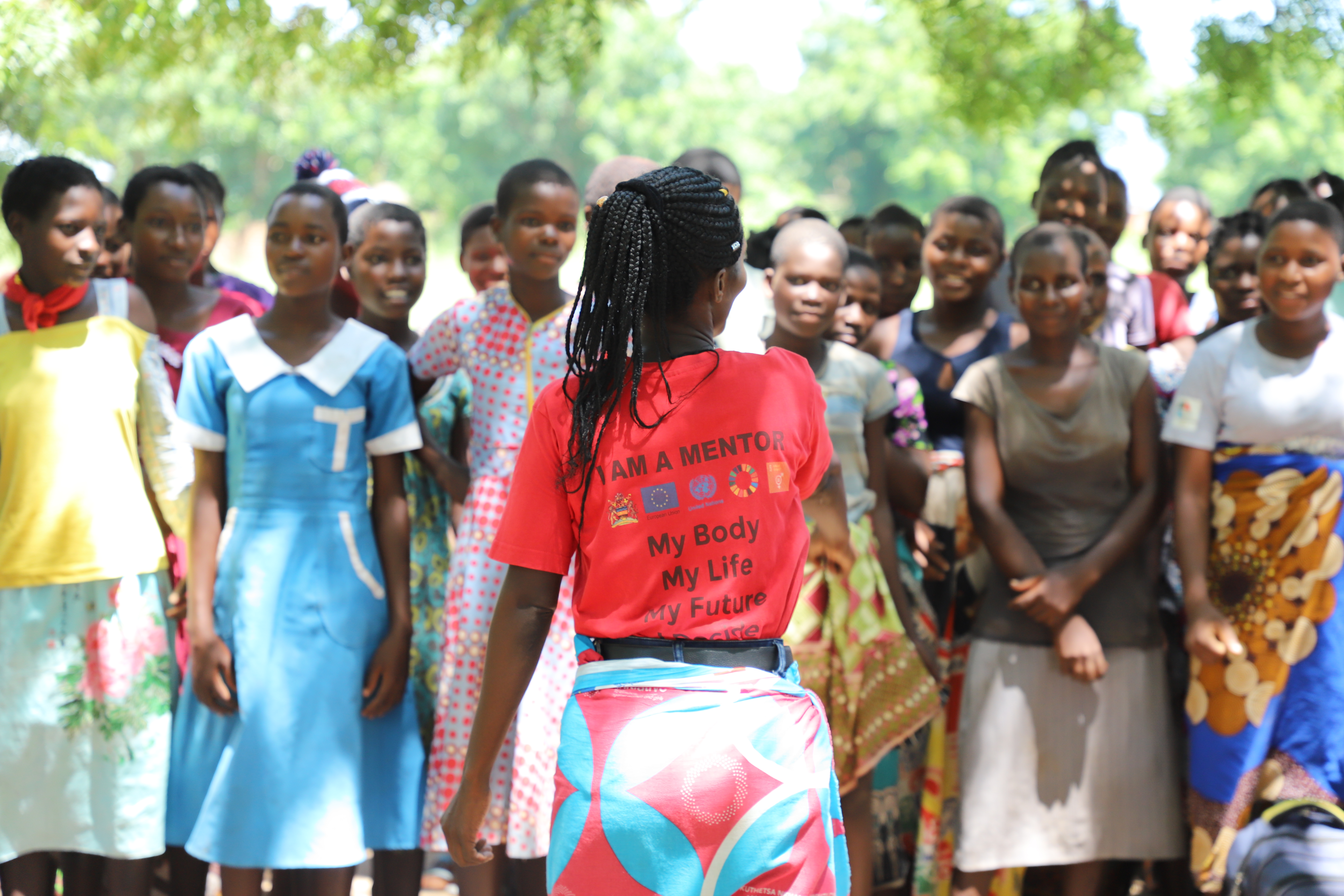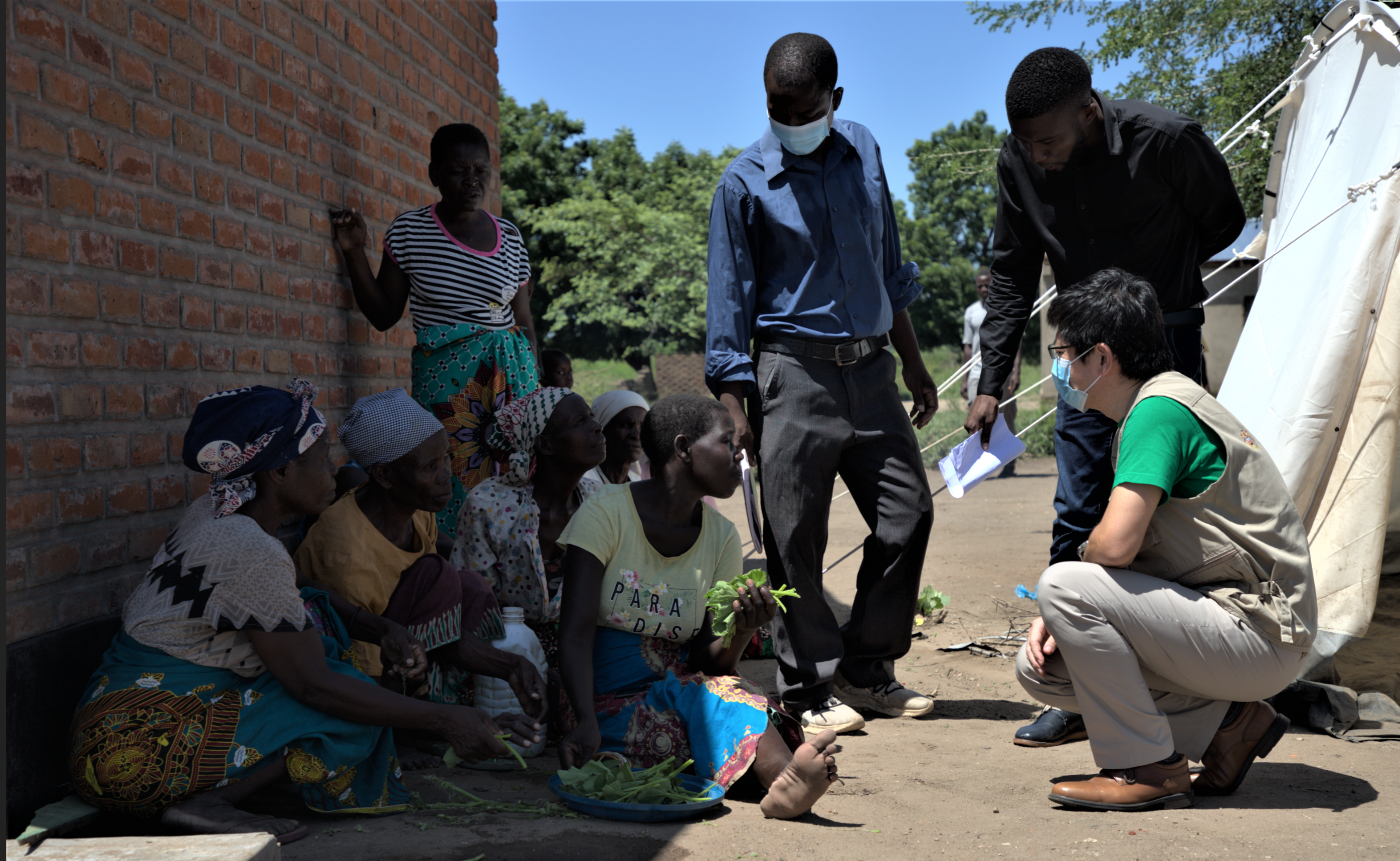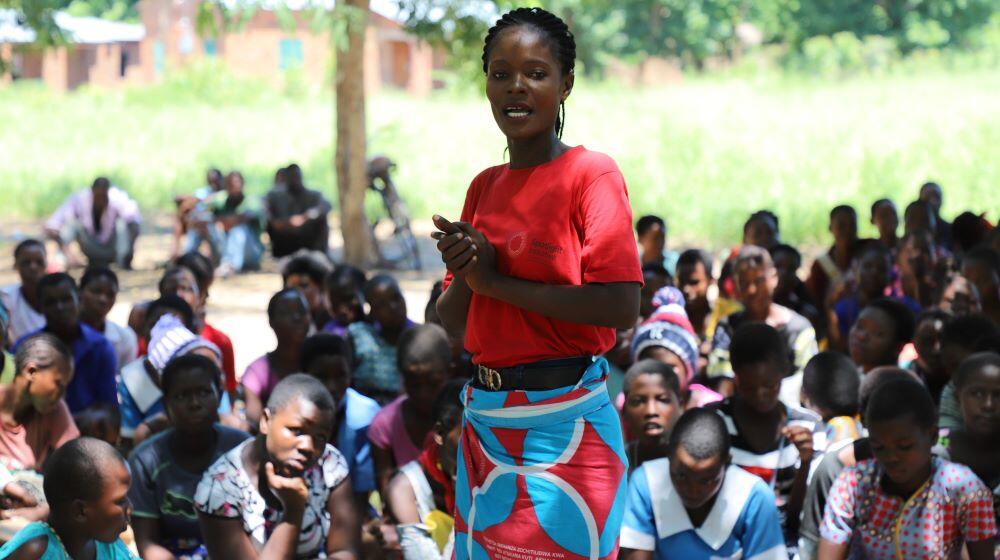NSANJE, Malawi - For the residents of Tengani Evacuation Camp for displaced persons in Nsanje, the year 2022 will forever be etched in their memories. In January, more than a thousand families had fled to the camp to seek for shelter after tropical storm Ana ripped through their communities flattening their homes.

For weeks, the families stayed in tents set up by humanitarian organisations, as they picked up of what was left of their lives. When things started getting back to normal, tropical cyclone, Gombe, hit the district destroying the camp they now called home.
“The winds were so strong that they tossed our tents up in the sky,” recalls Maxwell Banda, camp manager at Tengani Evacuation Camp. “We had to seek shelter under the trees, but it didn’t help. The downpours were heavy and, all night, we stood in the rain drenched.”
Tragedy of double disasters
With the tents gone, and almost half lying torn and broken, desperation gripped the residents of Tengani Evacuation Camp as more people flooded the place in search of shelter. During the first disaster caused by tropical storm Ana, 1,325 families were seeking refuge at the camp. The number of families ballooned to 1,506 after another tropical storm hit the area again.
“We couldn’t chase them away as they had nowhere to go,” says Banda, “Almost all had their homes destroyed by tropical storm Gombe. But the problem was now the sleeping space.”
With a space crisis looming, the camp committee decided that the women and children stay in the few tents remaining, and that the men sleep outside as they awaited for more help from the authorities. The ballooning population at Tengani camp was now a cause for concern, because it required more security to keep the peace at the distressed shelter.
“With new arrivals coming, we knew that there was going to be security issues in the camp,” says Banda. “Men and women, even boys and girls, were sleeping in open spaces. So the community police had to patrol the camp all night.”
In Malawi, violence against girls and women is widespread with one third of women having ever experienced violence including sexual violence before reaching the age of 15. And the risk for women and girls is heightened during disasters, which called for prompt action to prevent and respond to gender based violence during the humanitarian crisis.
Piloting ‘safe spaces’ in the camps
Through the Spotlight Initiative, funded by the European Union, mentors from ongoing programme in the district were quickly mobilised and actively engaged in raising awareness on gender based violence (GBV) within the communities, and in the displaced camps. So far, 40 ‘safe spaces’ consisting of the most vulnerable adolescent girl mentors and mentees were additionally established in the camps reaching out to 2,266 girls.
The mentors are also conducting bi-weekly sessions on GBV risks, sexual and reproductive health issues including menstrual hygiene and family planning, ensuring that there is a coherent supportive network and referral system.

One of the newly recruited mentees at Tengani Evacuation Camp is 19-year-old Sarai Charles. Sarai, who is in the first year of her secondary education, says she came to the camp with nothing and this made her and other girls in the same situation GBV targets.
“Because of our desperate situation, some men were coming to coerce us into relationships in exchange for food,” says Sarai.
But with the creation of the ‘safe spaces’ in the camps, the girls have been empowered with knowledge on what constitutes sexual and gender based violence and where to report in case they encounter such situations during their stay at the camp.
“Through the ‘safe spaces’, we are now aware of all types of gender based violence,” says Sarai, adding, “Even the men around the camp know that if they try to abuse us in any way, we can report them to the police.”
During a recent visit to Tengani Evacuation Camp, UNFPA Deputy Representative, Masaki Watabe said that the piloting of ‘safe spaces’ in camps is one way the Spotlight Initiative adapted to respond to the current humanitarian needs in Nsanje. He further adds that the results of this approach are encouraging as seen through the increase in the level of awareness of GBV by women and girls in the camps and the host communities.

“We definitely want to scale up this type of interventions supporting communities’ resilience against climate related shocks and threats and addressing the humanitarian-development nexus,” says Watabe. “Doing so will enable us to better mitigate the risks of gender based violence and sexual exploitation and abuse that might happen in the camp context, including those potentially committed by aid workers and service providers.”
By Joseph Scott, Communications Analyst


